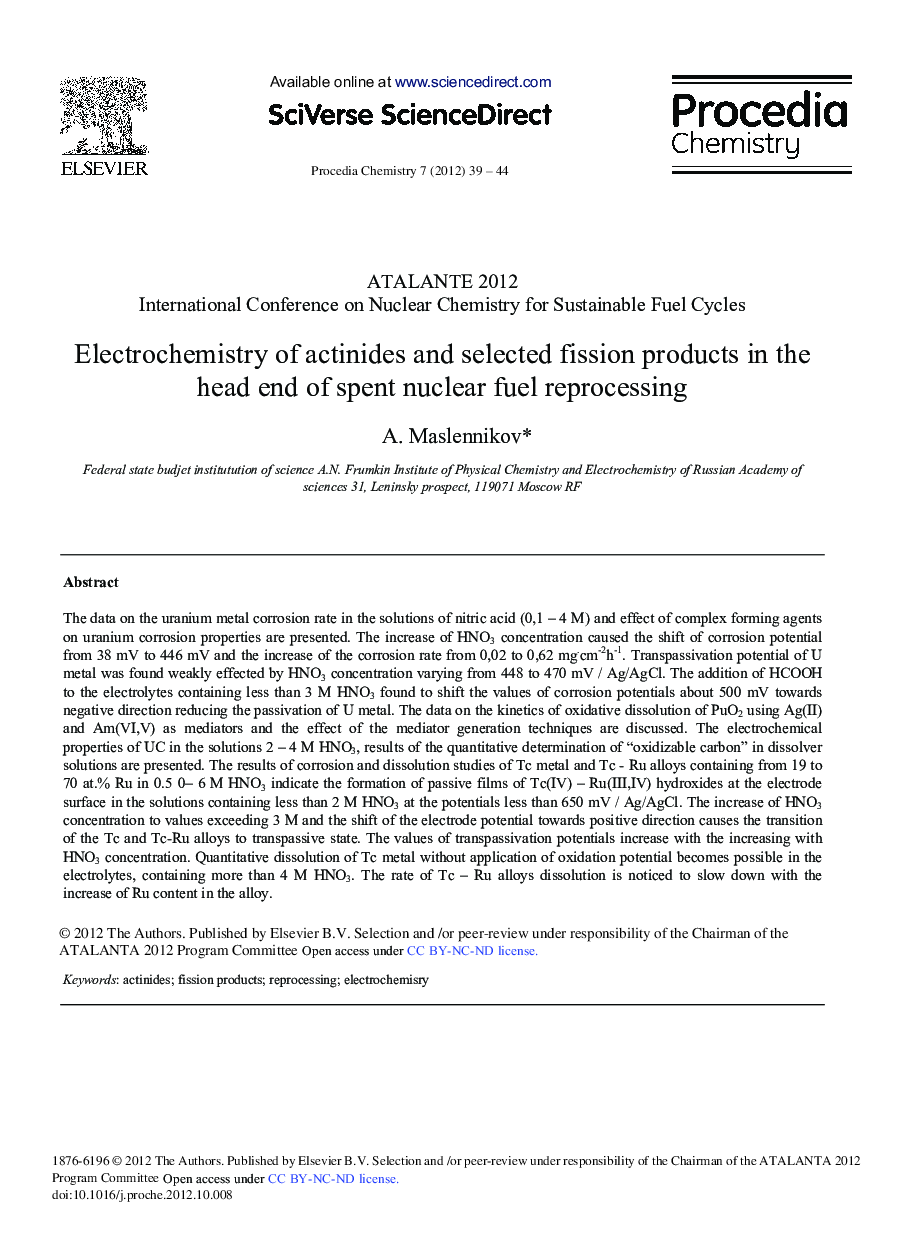| Article ID | Journal | Published Year | Pages | File Type |
|---|---|---|---|---|
| 240090 | Procedia Chemistry | 2012 | 6 Pages |
The data on the uranium metal corrosion rate in the solutions of nitric acid (0,1 – 4 M) and effect of complex forming agents on uranium corrosion properties are presented. The increase of HNO3 concentration caused the shift of corrosion potential from 38 mV to 446 mV and the increase of the corrosion rate from 0,02 to 0,62 mg.cm-2h-1. Transpassivation potential of U metal was found weakly effected by HNO3 concentration varying from 448 to 470 mV/Ag/AgCl. The addition of HCOOH to the electrolytes containing less than 3 M HNO3 found to shift the values of corrosion potentials about 500 mV towards negative direction reducing the passivation of U metal. The data on the kinetics of oxidative dissolution of PuO2 using Ag(II) and Am(VI,V) as mediators and the effect of the mediator generation techniques are discussed. The electrochemical properties of UC in the solutions 2 – 4 M HNO3, results of the quantitative determination of “oxidizable carbon” in dissolver solutions are presented. The results of corrosion and dissolution studies of Tc metal and Tc - Ru alloys containing from 19 to 70 at.% Ru in 0.5 0– 6 M HNO3 indicate the formation of passive films of Tc(IV) – Ru(III,IV) hydroxides at the electrode surface in the solutions containing less than 2 M HNO3 at the potentials less than 650 mV/Ag/AgCl. The increase of HNO3 concentration to values exceeding 3 M and the shift of the electrode potential towards positive direction causes the transition of the Tc and Tc-Ru alloys to transpassive state. The values of transpassivation potentials increase with the increasing with HNO3 concentration. Quantitative dissolution of Tc metal without application of oxidation potential becomes possible in the electrolytes, containing more than 4 M HNO3. The rate of Tc – Ru alloys dissolution is noticed to slow down with the increase of Ru content in the alloy.
